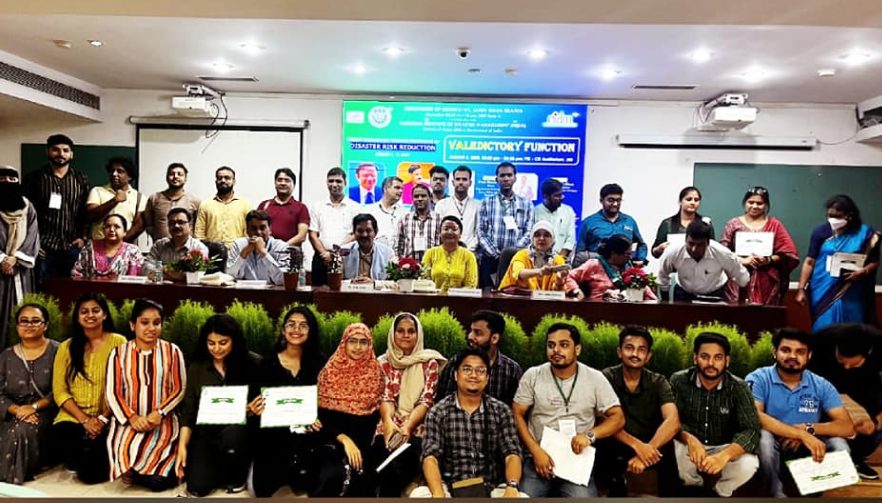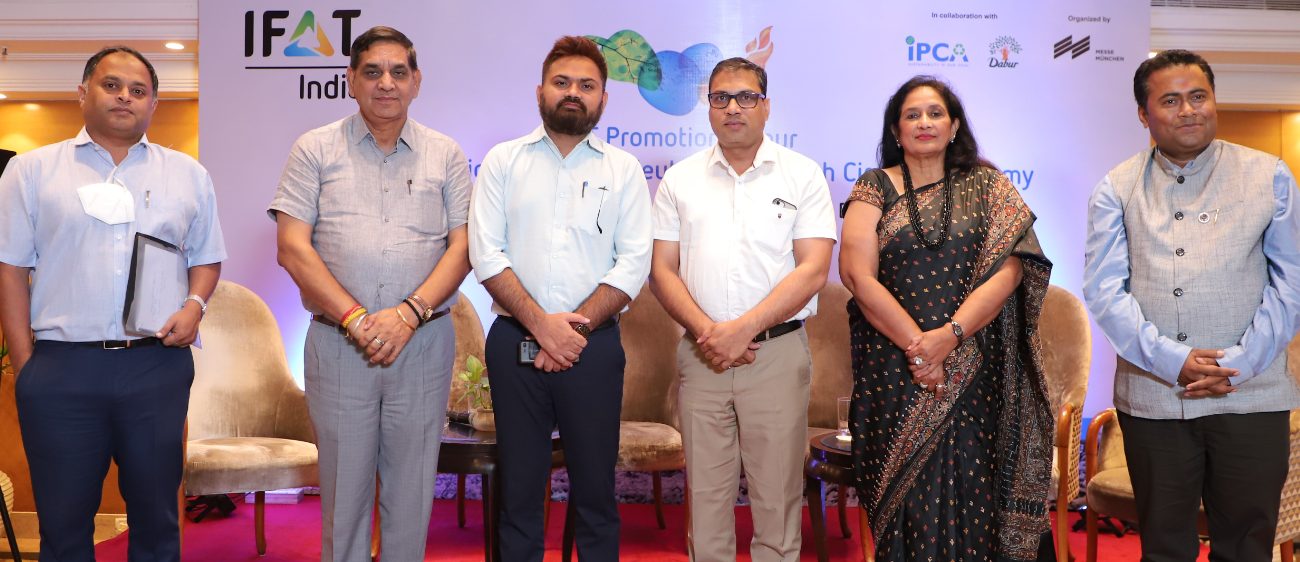Five day Faculty Development Training programme on Disaster Risk Reduction hosted by the Department of Geography, Jamia Millia Islamia(JMI) and jointly organized with National Institute of Disaster Management (NIDM) concluded on 5th August, 2022. The valedictory function was held at FTK-CIT Hall. Dr. S.D Attri, Additional Director General, Ministry of Earth Sciences, Govt. Of India graced the occasion as the Guest of Honour and delivered the keynote address.
Dr. Asif, the coordinator of the programme presented the report on well structured eighteen sessions held during five days. Faculty and young scholars across India participated in the programme. Eminent academicians and practitioners from prestigious institution such as UNICEF, Ministry of Home Affairs and Safdarjung Hospital delivered their lectures on disaster risk reduction. Most crucial issues such as earthquake resistant buildings using high density thermocol, participation of youth in reducing the impact of climate change, disaster vulnerability to school, role of geoinformatics in flood disaster, safety of institution campus during pandemic and mitigation aspects on disaster risk reduction were deliberated. The participants were also sent to nearby areas to examine the vulnerability.
Dr. Amir Ali Khan, convener from NIDM side suggested future coursework. He discussed the perception of the participants from the vulnerable areas. He stressed the need for alternative arrangement for high tension wires, revival of heritage buildings, mechanism of coherent and well-coordinated disaster management plan of the university, subway construction for avoiding accidents and availability of fire extinguishers in all the departments of the university.
Dr. S.D Attri in his keynote address drew attention towards the role of India Meteorological Department in reducing the effects of disasters. The department is playing a significant role in predicting meteorological variables and issuing early warning for disaster risk reduction. He further discussed about the fast-changing climate and its impact on food security, water, health and energy. He suggested effective strategies for reducing disaster risk reduction in such areas. Earlier, Prof. Haroon Sajjad, Head of the Department and convener of the programme welcomed the guests. The programme was meticulously conducted by the coordinator from JMI Prof. Lubna Siddiqui. The vote of thanks was proposed by Prof. Mary Tahir.


